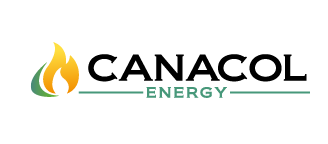As a leading gas Company, we recognize our responsibility to provide a cleaner energy future for millions of people.
A Cleaner Energy Future
US$ 2.7 million in 2019 for reforestation, biodiversity protection, creation and maintenance of ecosystem services, and residual water initiatives, among others.
Environmental Compliance
Our management system is currently certified in the ISO 14001: 2015 Environmental Management Systems standard. The certification is granted by SGS Colombia, which performs follow-up and evidence-based audits to ensure our compliance.
we received no environmental related fines or penalties.
Environmental Compliance in our Value Chain
We constantly monitor and evaluate the environmental performance of our contractors and suppliers.
Energy Use
We have carried out the progressive substitution of diesel fuel with natural gas in our operations. The natural gas is sourced from our production, which has created a significant reduction in our carbon footprint. Using solar power in remote locations and for other applications has also reduced diesel consumption. We have also coordinated spreading energy loads across our various generation facilities to improve efficiency and reduce fuel consumption.
of the energy generated for Canacol’s operations came from natural gas.
In 2019, the most relevant initiatives to reduce our energy consumption were:
- • Deploying solar lighting along the perimeter fence at Plant 3, minimizing the demand for electrical energy.
- • Decreasing resource use by enabling the camp generator to be switched off. This decrease was accomplished by unifying the camp’s energy source with the generator at Plants 1A/1B.
- • Increasing the service time for oils used in compressors at Plant 2 from 3,000 hours per Manual to almost 4,000 hours by implementing monthly oil analysis.
Constantly reducing our emissions.
We have reduced our emissions intensity 27.7% since 2017.
Carbon Footprint
Our transition in production focus from crude oil to natural gas and energy efficiency/emissions reduction initiatives have allowed us to significantly reduce our carbon footprint and comply with our commitment to provide cleaner sources of energy.
Water Management
Gas development is not a water intensive process, however we manage our water usage carefully and continue to implement initiatives to minimize consumption and to recycle where feasible.
Solid Waste Management and Disposal
Canacol’s Comprehensive Solid Waste Management plan details the waste management strategies and methods used, as well as how related metrics are calculated.
Hazardous Waste by Disposal Method
| Method | Kilograms |
|---|---|
| Reuse | 1,020 |
| Recycling | 25,390 |
| Recovery | 250 |
| Incineration | 29,980 |
| Landfill | 3,100 |
| Others | 11,330 |
| Total | 171,070 |
Non-Hazardous waste by disposal method
| Method | Kilograms |
|---|---|
| Recycling | 16,170 |
| Landfill | 39,440 |
| Total | 55,610 |
Community Environmental Training in 2019
We coordinated 22 environmental workshops in the departments of Córdoba and Sucre. On average, 40 people took part in each workshop, benefiting a total of 880 people.
Biodiversity
Site Assessment and Monitoring
We use Environmental Impact Studies to identify and establish conservation zones within our area of operations.
We classify flora, fauna and hydrobiological resources, identifying their composition, structure, and potential risks at 100% of our operations.
Reforestation
Our goal for reforestation is to promote conservation and biodiversity
